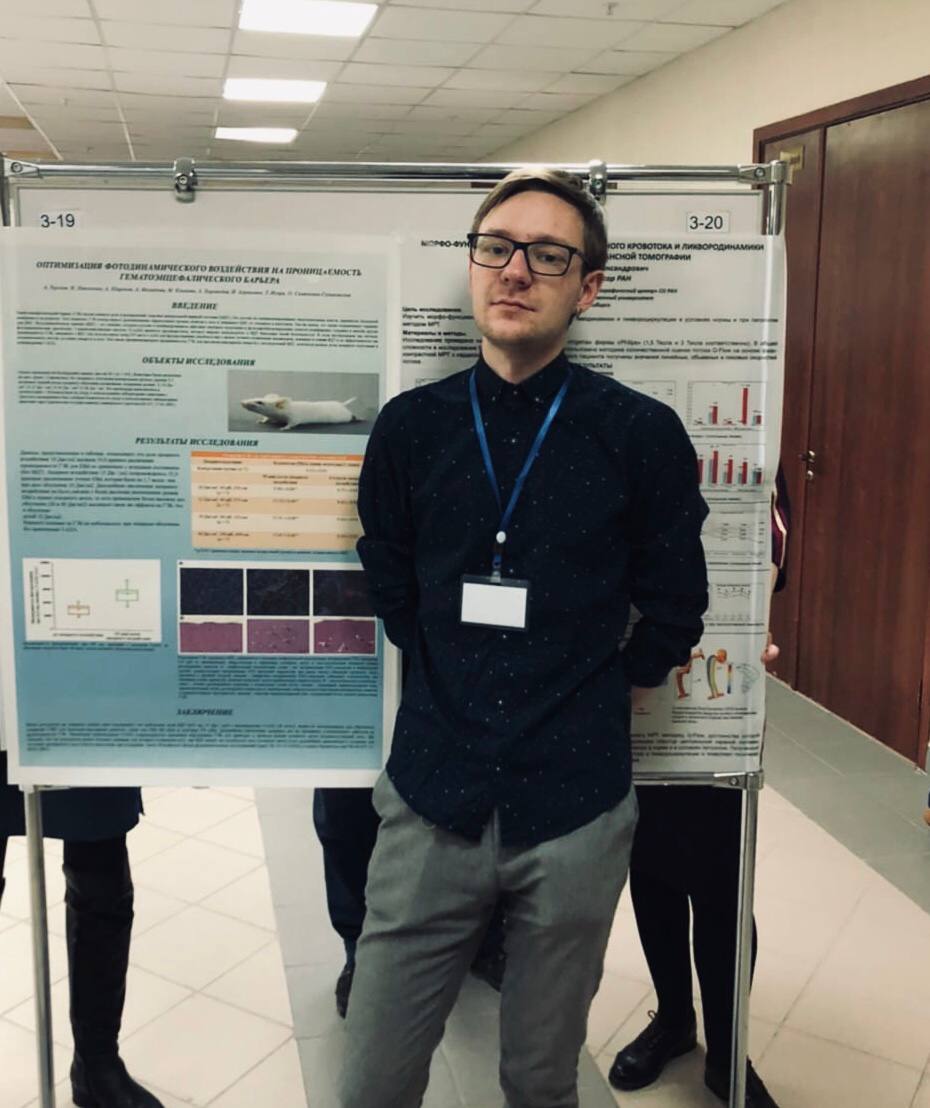We asked a few questions to those who are still taking postgraduate courses, and who have recently graduated from it and have already presented their PhD theses successfully. The cycle of our dialogues with young scientists is continued by a postgraduate, engineer of the Department of Human and Animal Physiology at the Faculty of Biology, SSU, Andrei Terskov:

‘I did not have any doubts and decided to enroll in the postgraduate course, as I wanted to continue my research. Postgraduate studies provide with a unique opportunity to work on your own project with experienced supervisors, and also allows you to participate in the life and events of the scientific community and improve your research skills.
I am studying at the Department of Human and Animal Physiology of the Faculty of Biology. My supervisor is Oksana Semyachkina-Glushkovskaya, Chair of the Department of Human and Animal Physiology. I combine postgraduate studies with work in the laboratory and teaching.
Recently, I have been studying the meningeal lymphatic system, as well as the possibility of stimulating it, for example, by exposure to laser radiation. This is a very interesting study because stimulation of the lymphatic system improves the elimination of various toxins from the brain.
Postgraduate studies are an important step in my scientific career, providing with an opportunity for in-depth and comprehensive study of the chosen research topic. In addition, the postgraduate course allows you to actively interact with the scientific community, participate in conferences and seminars, which contributes to the exchange of experience and the gaining of new knowledge.
I am a co-author of 41 research papers included in the Scopus citation database, as well as 4 patents. The Hirsch index is 9 (according to Scopus). I have participated in 6 grants of RSF and RFBR, as well as in the Lymphasleep government megagrant 2019-2023. 075-15-2022-1094.
The biggest achievement of my postgraduate studies will be the successful presentation of my PhD thesis this year. This will be an important step towards the development of my scientific career. In the future, I hope that my research will be an important informative platform for the development of innovative technologies for the prevention and treatment of brain diseases accompanied by disorders of lymphatic drainage and lymphatic drainage processes, such as Alzheimer's disease, Parkinson's disease, injuries, and brain tumours.’







